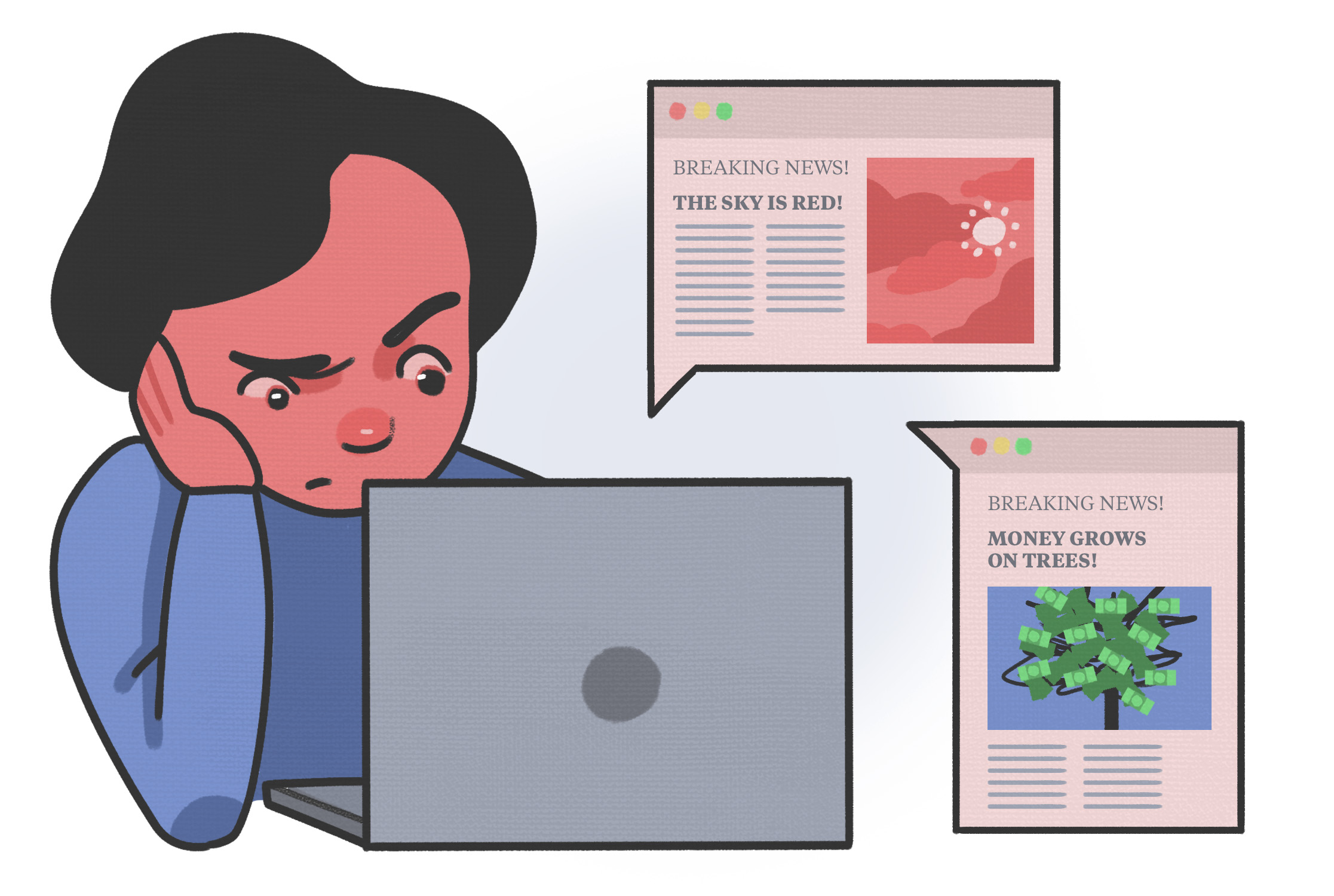When hundreds of Donald Trump’s most extreme supporters attacked the U.S. Capitol, the world saw just how deeply some believed the 2020 presidential election had been stolen from Trump. These individuals were so confident in the idea that their democracy was in jeopardy that they were willing to attack the heart of the U.S. government.
Seeing the event unfold, I couldn’t help but wonder what would be different if the general public were able to accurately identify truth from calculated lies.
Living in the age of information, there are endless articles, opinions and resources available, but with a growing pool of information comes a necessity for an increasingly critical public.
If we are not able to tell valid evidence from falsified claims, large sections of society will continue to be led astray by predatory leaders and organizations alike. For this reason, it should be the responsibility of educational institutions like the University of Manitoba to teach their students data literacy.
Data literacy, or the ability to derive meaningful information from data, is a relatively new concept but exists in unison with older fields like media and digital literacy.
In an ideal world, everyone would be able to come across a piece of information from a newspaper or Facebook post and critically evaluate its claims before sharing or citing it. Data literacy is especially important in stopping the spread of misleading information as data and algorithmic decision-making — the use of data to deduce correlations and make decisions based on probability — is so widespread in the current global context.
For example, in 2017, the Facebook and Cambridge Analytica scandal exposed that Facebook algorithms delivered disinformation and advertisements to users based on their profile and other data collected by the site. This misinformation was specifically designed to influence the public’s decision on the 2016 U.K. referendum to leave the European Union and the 2016 U.S. presidential election.
When something as integral as the public’s vote is at stake, it is important that we are not only able to tell fact from fiction but also that we understand how our data can be used in malicious ways.
If the public is not aware of how data is collected or how powerful our collective information is, we will be left extremely vulnerable in a world stratified by data.
Data literacy needs to involve not only understanding data and its uses, but also challenging the misinformation we are exposed to and the power structures that deliver it to us.
And it is especially relevant considering COVID-19.
Scores of misinformation pertaining to COVID-19 vaccines are being shared across social media. From thinking that a vaccine can give a patient the virus to one woman’s claim that the vaccines will alter your DNA, these myths could delay pandemic-crushing herd immunity.
If more people were educated on how studies are conducted and what the data analyzation process entails, much of the controversy surrounding the new COVID-19 vaccines could be put to rest.
There were 43,661 people enrolled in the Pfizer vaccine trials, which is a large sample size.
The reviewal of the data underwent the same protocol and safeguards as other vaccines and both the Pfizer and Moderna vaccines have been scientifically proven to be safe.
If the public is going to be exposed to articles, videos and other posts referencing studies and clinical trials, it’s crucial that they possess a basic level of data literacy. Understanding how studies are conducted and what statistical evidence means is not intuitive to the average person, but it is crucial when sifting through information.
A public that has data literacy skills emphasizes validity and verification over virality, and this is exactly what is required when a large portion of information we digest from social media could very well be misleading.
Citizens are being called upon to not only verify the news and other content that they consume, but also navigate and understand purposely misleading digital platforms and privacy settings.
The U of M should move toward developing a required data literacy course or an online program that all enrolled students must complete. The course should be a combination of data science and technological training while also emphasizing the social aspects of misinformation.
There is no single solution to the contemporary issues caused by misinformation — only a combination of education, legislation and technological solutions will be able to curb the spread of deceptive sources and abuses of privacy.
As a public educational institution, this university is in a unique position to start teaching students the skills a data-literate public requires. By creating a course that covers the basics of data literacy, including the social aspects, the university can grant students a real-world skill that fosters far more than professional skills.
From the attempted coup at the U.S. Capitol building to widespread lies about the danger of lifesaving COVID-19 vaccines, it is increasingly evident that the misinformation we consume has real-world implications. It’s imperative that universities like the U of M take a stand against the dangers of misinformation.



